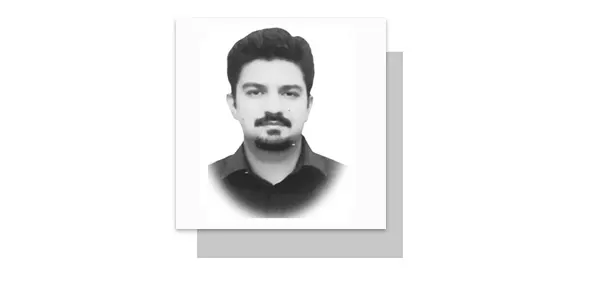IN my clinic, day after day, I meet women who cannot sleep, who carry invisible pain, who complain of chronic fatigue, palpitations, headaches or body aches that medical tests never quite explain.
They are not malingering. These symptoms are real, but they do not stem from disease; they stem from dysfunction. Not physiological, but familial.
In our society, we are quick to label such presentations as “stress” or “hysteria,” but that is a lazy diagnosis. Dig deeper and a pattern emerge; the domineering father and the devouring mother, two opposing yet equally suffocating figures—who frame the architecture of too many Pakistani households. The father rules like a monarch, silencing dissent with economic or emotional coercion. The mother, instead of nurturing, consumes her children with guilt, manipulation and an exaggerated sense of martyrdom.
As a family physician, I find myself treating not just bodies, but generations of emotional trauma. Women—bright, capable and intelligent, are made to shrink. They live under constant surveillance, not of the state, but of the family. Their choices are questioned, their silences interpreted and their boundaries bulldozed. Their careers, friendships and even clothing become family business. It is as if being born a woman here means inheriting a lifelong sentence of being accountable for everyone’s happiness but your own. When their minds and bodies begin to rebel—through somatic symptoms, panic attacks or depressive episodes—we give them medication, but no relief. Because no pill can fix the emotional architecture of a home that is designed to stifle rather than support.
What makes it worse is that this dysfunction hides behind the façade of “family values.” However, Islam teaches us something different. The Last Prophet (PBUH) said, “The best of you are those who are best to their women” (Tirmidhi). He did not say: those who control them, confine them, or infantilize them. He said to be good, kind, fair, loving and respectful. The Qur’an refers to the relationship between spouses as one of tranquillity, affection and mercy (Surah Ar-Rum, 30:21). Not surveillance. Not dominance. Not suffocation. Women are not meant to be ornaments of patience or vessels of sacrifice. They are moral agents, worthy of choice, dignity, and respect.
The Prophet’s life gives us countless examples. His wife Khadijah was a businesswoman. Aisha was a scholar and teacher. Umm Salama was a political voice. These were not women hidden behind walls of fear or submission; they were women who flourished in safe, empowering environments, often created by the Prophet himself. So what do we say about “safe spaces” for women when the family home is the very source of their illness? When the father’s authority becomes a form of spiritual gaslighting and the mother’s affection becomes emotional captivity? Where is the space for mental health when the very air in the house is thick with fear, guilt and shame?
Societal change begins at home. We must unlearn what we have normalized: that silence is respect, that sacrifice is love, that control is care. We must raise boys who see their sisters as equals, not subordinates. We must teach girls that obedience does not mean erasing yourself. We must remind parents that love without freedom is not love; it is possession. If we want to heal our women, we must first heal our homes. The soul cannot thrive where it is not safe. Islam gives us the blueprint. We need the courage to build by it.
—The writer is Associate Professor, Health Services Academy, Islamabad.
(drahmedabdullah83@gmail.com)


















